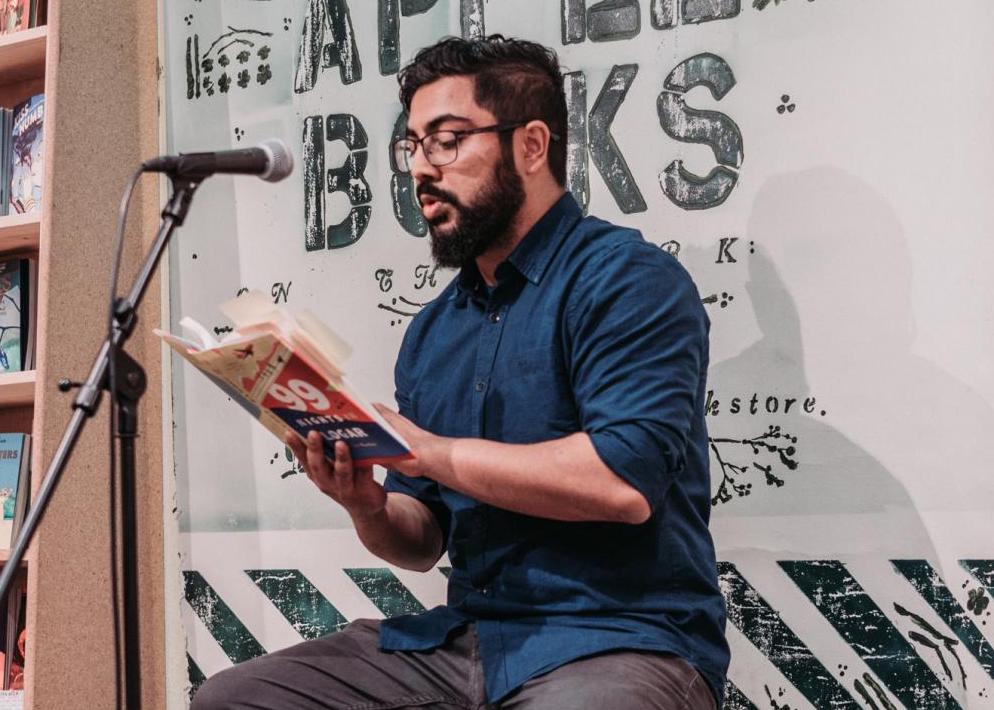Afghan-American author Jamil Jan Kochai will release his next book The Haunting of Hajji Hotak and Other Stories in the summer. Kochai previously wrote 99 Nights in Logar (2019).
His latest book presents a living history that moves between modern-day Afghanistan and the Afghan diaspora. Its characters are haunted by the ghosts of war. Kochai meditates upon fathers and sons, exploring memory and heritage in the diasporic life.
Jamil Jan Kochai: writing career
Kochai previously worked as a Truman Capote Fellow at the Iowa Writers’ Workshop, where he also won the Henfield Prize for Fiction. His short stories have appeared in The New Yorker, The New York Times, Los Angeles Times, Ploughshares, and The O. Henry Prize Stories 2018.
In 2019, Kochai released his first novel 99 Nights in Logar. This earned him a place as finalist for the Pen/Hemingway Award for Debut Novel and won him the DSC Prize for South Asian Literature. The book brings Afghan culture to life, described as a “dazzling tale” by author Sandra Cisneros. Justin Torres called it “a revelation, in every sense of the word.”
Kochai now works as a Stegner Fellow at Stanford University.
Jamil Jan Kochai’s circuitous route to California
Born in an Afghan refugee camp in Peshawar, Pakistan, Kochai originally hails from Logar, Afghanistan. He grew up in the United States, and has a bachelors degree from UC Sacramento and a master’s from UC Davis.
Kochai remembers growing up in America amidst a constant air of suspicion due to his Muslim identity. After 9/11, FBI agents showed up at his front door wanting to speak to his father. Although they never returned, their presence haunted him. “We lived with an odd sense of paranoia, which we often joked about in group chats, but this feeling of being surveilled did weigh on me. The agents had left, but they continued to exist in our lives like specters.” he says.
Now Kochai writes about these ghosts in his stories.
Jamil Jan Kochai: “The Haunting of Hajji Hotak and Other Stories”
Kochai’s latest collection of stories draws from these experiences of living among the Afghan diaspora. The Haunting of Hajji Hotak follows an Afghan family in America, as seen through the eyes of a surveilling spy. Kochai writes it in the second person, addressed to the agent: “what I wanted was for the reader (and, perhaps, for myself) to feel implicated in the act of spying, surveilling, delving into the secret life of this family,” he says.
The family consists of a semi-disabled father (Hajji) and his mother who had come to America 40 years ago. And even so they are still perceived as a security threat. How could this be? “The U.S. (its government, its military, its policing institutions, and, to be honest, much of its population) developed a pathological fear not only of Muslims but of Islam itself,” Kochai says.
Kochai’s characters tend to be immigrants and refugees haunted by the specters of war and violence. But he emphasizes that his work is not all somber. “What I have always loved about the Afghans in my life is their indomitable sense of humor in the face of great tragedy, and I hope that some of this humor has made its way into the book,” he adds.
Pre-order the book here and follow Kochai on Twitter for all his latest news.
Check out some other award-winning short stories here.



